Don't wanna be here? Send us removal request.
Text
Linux: Do you need to know Linux as a DevOps Engineer?
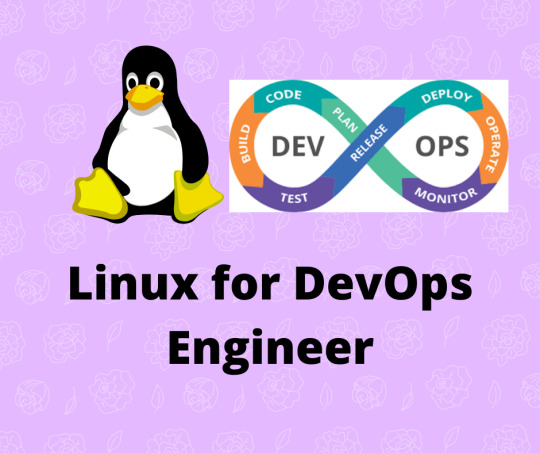
Introduction:
As a DevOps engineer, you will be working with Linux servers. That is as a minimum. Although some companies and their scope maybe different. Is Linux a pre-requisite for a DevOps Engineer position? Many companies are looking for DevOps candidates that have extensive Linux experience. If you are an aspiring DevOps engineer, do you have to know Linux inside out? Let’s find out!
What is Linux in a nutshell?
Linux is a free computer and open source software compiled under the free software development and distribution model. The essential part of Linux is the Linux kernel, a kernel operating system that was first released on October 5, 1991 by Linus Torvalds.
Linux was originally developed as a free operating systems for personal computers based on Intel x86. It has since been shipped to more computer platforms than any other operating system. It is a leading operating system for servers and other major hardware systems such as mainframe computers: more than 90% of today’s 500 fast computers use Linux variants.
Linux also works on embedded systems (devices where operating systems are usually built into firmware and heavily targeted in the system) such as mobile phones, tablet computers, network routers, televisions and video game consoles; the Android system widely used on mobile devices is built on the Linux kernel.
Should you learn Linux as a future DevOps Engineer?
The DevOps movement has been gaining momentum, and more and more organizations are embracing DevOps practices that enable them to release high-quality software faster, more efficiently, and more reliably.
Tens of thousands of organizations have adopted a DevOps culture and methodology. If you want to learn about DevOps and its culture, check out this blog here.
It is a common debate that if you want to become a DevOps engineer, should you learn Linux or not. So, in this article I would like to throw some light on this topic and discuss why Linux should be your first choice when it comes to learning DevOps.
Till date, every DevOps tool available in the market is built upon two core technologies- Linux and Docker. Therefore, it is necessary for a DevOps engineer to have a good understanding of these technologies. Plus, learning these technologies can help you understand other advanced tools such as Puppet, Chef, SaltStack etc.
Another reason why Linux or any other open source technology should be the first preference while choosing DevOps is that they are free of cost. You don’t have to pay anything to learn them. As compared to commercial products, they don’t have any hidden costs or license fees either. You just need an internet connection and you’re good to go!
Linux makes it easy for someone to explore new things and learn new skills at no cost. The best part is that it’s not limited to just DevOps but also helps in learning how computers work. It helps in developing problem-solving skills and enhances your knowledge about different programming languages such as PHP, Python and Ruby etc
Resources for learning Linux:
There are plenty of resources to learn Linux, but not all of them are created equal. Some are great, some are good and some are just plain useless.
There are also plenty of paid versus free options when it comes to learning Linux. There’s nothing wrong with either option as long as you know what you’re getting for your money. Although there will be more content on the paid courses, always try and find a free course first. Some online courses can cost up to $500, which is a lot of money in anyone’s language.
Below I’ve listed my top websites for learning Linux:
Pluralsight: Pluralsight offers both free and paid video tutorials for those who want to learn how to use Linux. The videos cover topics such as security, programming, system administration and much more.
Udemy: Udemy is an online learning platform where users can find both free and paid classes on how to use Linux.
Udacity – Udacity offers a variety of courses that teach users how to use Linux. The courses include the basics on using the terminal, working with files, using text editors and much more.
Conclusion:
So, if you’re going to be a DevOps engineer, then you obviously need some level of Linux proficiency. But the requirement to learn Linux may not end there: in addition to using it as your base operating system, many of the DevOps tools that you’ll use call for some level of Linux smarts. If you want to be a truly effective DevOps engineer—and if you want to get a good job—then make sure that at least some level of Linux is part of your foundation.
However, when looking for a job, don’t fall into the trap only listing “Linux” as one of your necessary skill sets; rather, make sure to list specific skills and tools that signal that you understand how Linux works and how to troubleshoot common issues with it. Good Luck!
#devops engineer#code#careers#linux commands#culture#developers & startups#tech#edtech#programming#ubuntu#software enginee#unix
0 notes
Text
How To Become A DevOps Engineer From A QA Background

Introduction
If you’re reading this, I guess that means you’ve been thinking about a career change from QA to DevOps. Great! You’re in luck, because the DevOps field is booming. Industry giants like Google and Netflix say the need for DevOps engineers is higher than ever before. In fact, if you want to enter 2022 with a high paying job, becoming a DevOps engineer should be your first choice
I was a Quality Assurance (QA) Analyst in a previous life. So I know what you are going through when moving to DevOps. I went through the same transition. This post will show you how to become a DevOps engineer from a QA background including what exactly is DevOps and lay out the path for you that I took in order to make it happen.
Start with Why?
The DevOps engineer role is different from that of a traditional QA tester. A QA tester is responsible for testing the software to verify its quality, while a DevOps engineer ensures that the deployment process runs smoothly. The demand for DevOps engineers is growing as companies are looking for individuals who can build and maintain applications to ensure their smooth performance. However, some projects fail because of the lack of a good DevOps engineer.
Here are some reasons why people with a QA background should consider becoming a DevOps engineer:
You already have an understanding of technical processes As a QA tester, you already know how to test software and you know how the process works in detail. You have experience in writing test plans and documenting bugs. In this regard, migrating to DevOps might be easier than you think.
The career growth opportunities are immense with DevOps In recent times, the position of DevOps engineers has become highly sought after in many tech companies because they possess high-level skills and expertise. According to INDEED’s State of Global Jobs Report, there is a huge demand for DevOps engineers worldwide, which makes this job even more lucrative and prestigious than it already is.
You’re already familiar with the technologies and tools used by DevOps engineers
You will be part of a bigger team that takes care of the entire application lifecycle, not just testing it. This means you will be able to see how the development evolves through your testing cycles.
QA qualities that will help you transition
If you have a background in Quality Assurance. You can build on that experience to get started as a DevOps Engineer. In fact, some organizations recruit QA professionals with no DevOps experience and train them for the job. The skills you bring from your QA role will help you succeed in this role. But there are some specific qualities that make for an ideal candidate for this job:
Systems thinking: A good DevOps Engineer needs to understand how the pieces of a system fit together. And recognize issues before they cause major problems. This means the ability to look at a process or system as a whole. Rather than just focusing on individual components.
An eye for detail: You need to be able to see errors or inefficiencies in processes and systems so you can identify places where automation can improve efficiency.
Detail-oriented: You’ll need to gather data about performance benchmarks and other key metrics. So that you can assess how well your processes are working. And troubleshoot them if they’re not performing up to par. This means a strong focus on details. Which is why someone with an aptitude for quality assurance may be the best fit for this role.
Automation Expertise: You might also notice that developers start using your automation scripts to automate their work. And even build them into their continuous integration (CI) pipeline. In order to do that they need some help from you. Because you are more familiar with the project than they are and you know what can be automated effectively
Bridge the gap:
Find out how DevOps is different from QA.
What skills do you already have to transition into this job?
Figure out where can you learn new skills to become a DevOps engineer. Read this post about ‘Top 5 DevOps tools that a DevOps Engineer needs to learn’.
Think out of the box:
Learn more about Servers, Web servers, Databases etc.
Work with your team to create a DevOps checklist for each release.
Consider taking on new roles in QA that test an application beyond its functional requirements
Don’t simply show up for testing and disappear in a production release. Try to stay and focus the full deployment implementation and get genuinely involved.
Work with your team to create a Devops checklist for each release
Get involved in each step of the DevOps checklist
DevOps requires skill sets from both a software developer and quality assurance engineer. Learn how to gain those skills throughout your career.
Conclusion:
So if you want to transition into DevOps skills. Start by making sure there is a real need for it in your project or company. If there is, then ask your manager or someone else. Who has experience in DevOps transformation if there are any positions available that require DevOps skills.
Be prepared for an interview. Which will include behavioral questions and technical questions about the tools and processes of DevOps engineers.
Once you get hired for such position make sure you:
Learn all necessary tools as fast as possible. (they will be different depending on what kind of companies you work for)
Work closely with development team members. Because they are the ones who actually understand what is required from software solution and what can be automated.
Also, work closely with operations team members. Because they will help you understand processes and procedures that exist in your organization. So that you can automate some of them to reduce manual work load and increase efficiency.
Get yourself exposed to as many opportunities as possible. They will not only give you opportunity to gain experience. But also help increase your market value as a DevOps engineer.
Learning and practicing DevOps tools will open up a huge range of opportunities and is a great career move
#devops#culture#code#developers & startups#tech#edtech#books & libraries#hiring#techtalent#agile leadership
4 notes
·
View notes
Text
I Can See Clearly Now (with Jenkins): A journey through implementing DevOps.
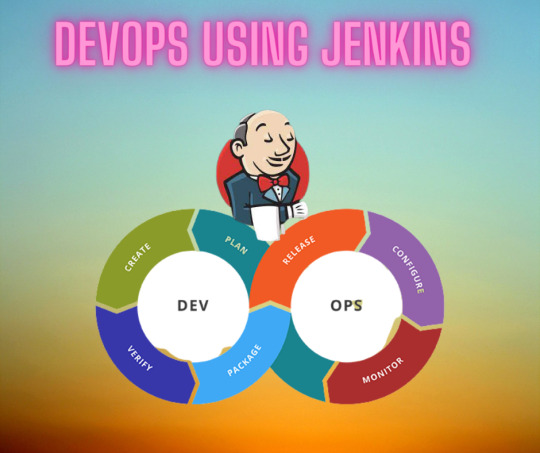
Introduction:
Jenkins is the most popular Continuous Integration tool available today. It is a cross-platform, Java-based open source automation server. DevOps engineers use Jenkins as a CI server to automate and manage the software development process.
When I started my career in software development, I was thinking that implementing DevOps is something out of science fiction. I was actually more focused on the technical part rather than process improvements. At the end of the day, building a new application. Or fixing bugs just by pressing buttons on a remote server is really cool. But, in my opinion, continuous integration and delivery is not just a madness for saving time. It is much more important than that!
Implementing Continuous Integration in a DevOps Environment
Continuous Integration (CI) is a development practice. That requires developers to merge code into a shared repository several times a day. Each check-in is then verified by an automated build, allowing teams to detect problems early.
The practice of continuous integration is to create an automated build process. That builds the software in a clean environment every time someone makes a commit to version control (e.g., Git). This ensures that code is built using all of the same steps that it will be when it’s deployed to production. Which greatly reduces the occurrence of defects in the code
Deploying code frequently, even multiple times a day, can be scary in a DevOps environment. It means that new code is going to be deployed frequently and could potentially break things at any moment. Fortunately, there are lots of tools available to help.
implementing continuous integration as a part of your development process is hard work. You will have to spend time and effort getting everything set up correctly and communicating the changes throughout your team. However, once everything is in place. It will free you up to spend more time on improving the functionality of your application. Rather than working on release cycles and deployments.
When properly implemented, continuous integration will help you release your software faster, with fewer bugs and less risk. While giving you an improved level of insight into your application as a whole and its individual components.
.
Optimize your build with Jenkins Pipeline
Jenkins is an open source automation server. It is used for automating repetitive tasks like building, testing, packaging, deploying applications or infrastructure changes across different environments. Such as development, staging, QA and production. Jenkins provides hundreds of plugins that allow for building and testing virtually any project. In addition, Jenkins supports integrations with most common IDEs using its Ant and Maven implementation.
Jenkins Pipeline is a plugin that runs on top of Jenkins. And offers improved security, easier setup, and better performance than the older Jenkins Pipeline project. In fact, the latter has been deprecated since 2016. Because Pipeline is simply a layer on top of Jenkins. You can use it to perform all sorts of automation tasks.
Jenkins Pipeline makes it easy to design and implement a system of interdependent jobs that build, test, and deploy code. You can create complex workflows with multiple stages. Each running its own set of jobs, and you can run the entire process in a single Jenkins instance or on a distributed system using Docker containers.
The powerful Jenkins Pipeline plugin enables you to define your build in code. And gives you a wide range of tools to do so. Having an explicit definition of your build allows you to control it programmatically, and also helps with debugging. It is especially useful when used in conjunction with a change-based integration process. Where you can make sure that the right tests are run every time the code is checked in.
Jenkins + Web Hooks = Better Automation
There are many ways to implement Continuous Integration (CI) in your workflow.
Some people like to have their CI servers watch all of the source code repositories. For changes and kick off build jobs when something is changed.
Others prefer a pull request model. Where developers submit pull requests to the central repository that kicks off builds if the tests pass.
You may even have a hybrid approach. Where you have your own personal git repositories but also pull changes from a central repository.
As my team at work has grown and we’ve added more projects under CI. I decided it was time to take another look at how we were doing things. And see if there were more efficient ways to do things. Our current process works. But we always felt that it was slower than it should be. Since everything had to hit the central repo before being built. We wanted something that would let us get builds started faster. As well as having an easier way of knowing what was changed in a pull request. Versus what didn’t change after a merge happened.
This is where web hooks come in. Web hooks allow your server (in this case Jenkins) to be told when someone pushes new code. Or makes changes via a certain path (in our case only those paths that are relevant for building).
Jenkins is an exceptional CI tool, use it to optimize your development process
Imagine a future where you don’t have to worry. About your Amazon EC2 instances rebooting in the middle of the night. Instead, every time you push a new build and it passes all of your unit tests. Jenkins will spin up a fresh instance with that new build and handle the rest. You could finally stop worrying about supporting so many different operating systems (Windows Server 2003, I’m looking at you). Or making sure your projects support every PHP version under the sun.
The key reasons for choosing Jenkins are:
It’s an open source software used by more than 2 million users worldwide.
It’s written in Java, offering native support for all the major operating systems.
It integrates with a large variety of third party tools such as GitHub, Slack, SonarQube, Nagios and many more.
Jenkins has a rich plugin ecosystem which makes it easy to extend its functionalities. This is probably the main reason why Jenkins has become so popular among DevOps professionals. The range of plugins available make it possible to extend Jenkins beyond its built-in features and capabilities. Every organization can choose what plugins they need to integrate Jenkins with their existing development environment and tools.
A few examples of plugins that help improve the overall development process are:
Scripted pipeline – allows you to implement a broad range of tasks with ease using Groovy or other languages instead of using elaborate XML scripts;
SSH Execution plugin – allows you to run commands on remote servers through SSH directly from Jenkins
Want to start your career in DevOps? Simply fill this short form to download the e-book ‘Guidedpath to DevOps‘.
3 notes
·
View notes
Text
DevOps Is More About Culture Than It Is Technology
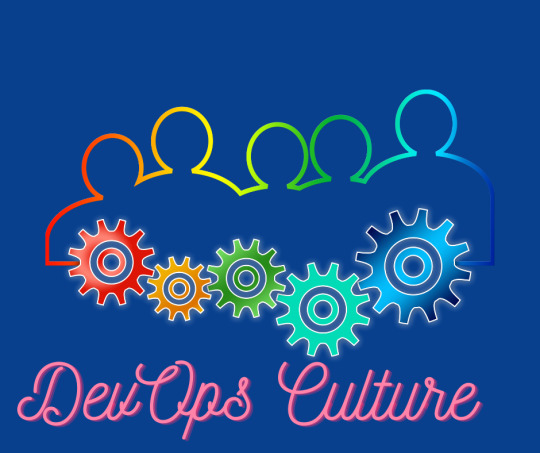
Introduction
DevOps is more about culture than it is about tools. If you want to improve your DevOps and start seeing results, you need to change the way your organization works.
If you’re trying to get your DevOps team to adopt a new tool.
Or you’re trying to sell a tool to the DevOps market. You need to understand that tools are not the most important aspect of DevOps. They matter, but they are not the most important thing.
The emphasis on tools over substance might lead you to assume that DevOps is just another fad. It seems like there’s something new every week—some “silver bullet” that will solve all of your problems. But DevOps is more about culture than it is about tools. It’s really about collaboration and communication across teams. In this way, it’s more like Agile than it is like IT infrastructure management (ITIL).
“DevOps, then, is a cultural movement. In fact, it’s more about culture than tools,” according to Chris Gervais and Gene Kim, authors of the book “The Phoenix Project: A Novel about IT, DevOps, and Helping Your Business Win.“
You can read the book review of ‘The Phoenix Project‘ on our blog.
Many organizations are keen to deploy DevOps but are scared by the cultural changes required to make it work. Culture change is a big challenge for any organization. Especially one with a traditional software development life cycle that has worked well for years. The good news is that there are proven methods for overcoming these challenges.
DevOps grows out of a more modern software development mindset
DevOps is a software development methodology that aims to increase the efficiency of software development. It’s based on the idea that communication and collaboration between IT operations and development teams (DevOps), will produce better results than when they work separately.
The term “DevOps” was coined by Patrick Debois at a conference in Belgium in 2009. DevOps is an extension of Agile development. Which promotes frequent code releases and collaboration between product managers, developers, quality assurance analysts and testers. Agile software development emphasizes flexibility, prioritizing innovation over consistency.
In many ways, DevOps is a more modern approach to software development that grows out of a more modern mindset. It combines the speed and creativity of Agile with the scalability and efficiency of lean methodologies.
Three ways to make your company culture more DevOps friendly
There are some key elements to consider for DevOps success:
Rapid change: To achieve its goals, DevOps must be able to rapidly respond to change. For example: Our customers using Chef Automate, are able to update their infrastructure changes in minutes rather than hours or days. Thanks to the automation features that Chef Automate provides.
People over processes: DevOps encourages people over processes. It is not about following processes but rather communicating between teams. To find the best ways to solve problems and make changes.
Continuous learning: Change is inevitable; therefore, every team member should be learning how to adapt and leverage new technologies as they emerge.
Conclusion:
I think the key takeaways here are:
That the culture and mindset are just as important as any technology in getting DevOps to succeed.
Companies will need to think in terms of communication and workflow, not just tools and processes.
Organizational structure may need to change. Tasks may need to be shifted. And both acquire and enterprise leadership must work together for it to succeed (typically through top-down support).
The question of “which tool?” is probably not the best place to start.
If you understand the process and find the tools that fit your needs. Then you’ll be able to implement those tools successfully.
Buyer’s remorse from dissatisfaction with a particular tool is usually triggered. By a lack of process and understanding of how the tool fits into that process.
#devops engineer#culture#code#developers & startups#tech#currently reading#programming#devops services
1 note
·
View note
Text
Misconception(s) of DevOps and how to overcome them
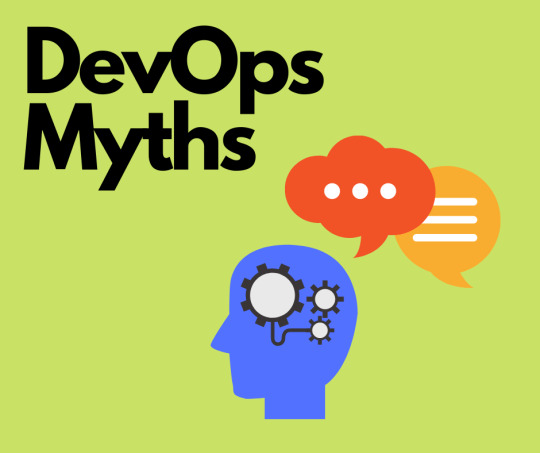
Introduction:
Having a misconception or two about a concept that is relatively new is very common. There are some misconceptions about DevOps in the market. Which prevents an organization from adopting it or growing the existing DevOps practice. In this blog, I’ve tried to list some of these misconceptions and their explanations
I’ve been working in software development for 12 years. So I have had plenty of experience with different types of projects. I have also started to work in DevOps (incidentally) over the last few years. And this has had me thinking about just why there is a backlash against the term “DevOps”. And because of this I wanted to put my thoughts on paper.
For those that don’t know. DevOps is actually an architectural view of how a business can improve its agility by adopting best-of-breed tool sets and improving processes for continuous delivery.
Misconception No.1: DevOps is a job title
This may be the biggest misconception out there. DevOps is not a job title. It’s not even an acronym. It’s more of a movement. A revolution even. But definitely not a job title.
There is a lot of confusion in the marketplace about what DevOps actually is. The good news is that it has been coined, defined, and so on. Nevertheless, there are still a lot of people who are thinking they need to hire a DevOps engineer. When they really need to hire someone with different skill sets and backgrounds.
Again, DevOps is not a job title. It’s a way for software developers (Dev) to work more closely with system administrators/operators (Ops).
In theory, this collaboration allows for increased efficiency. For instance, if the developers and operators can work together and anticipate each other’s needs. They could create something like automatic provisioning for physical servers or virtual machines (VMs). This means certain applications would start up when needed and stop when no longer needed. The benefits here are obvious — reduced power consumption and faster application startup times.
Misconception No.2: DevOps is just about automation
A lot of people (including a lot of CIOs) think that. DevOps is about tools and processes related to automating the deployment and operations of applications in production. This is only half true.
Tools like Puppet, Chef or Ansible can be useful for certain tasks, but DevOps is not just about tools — it’s about culture. The goal of DevOps is to improve collaboration between development and operations teams. By implementing new processes and tooling around continuous integration and continuous delivery.
DevOps is not a silver bullet that will solve all your problems, nor automatically make you money. DevOps has its own set of problems and assumptions. So you have to know what they are before you can start trying to fix them.
For example, DevOps is not just about automation. In fact, automation is the least important part of DevOps! Automation allows you to scale your operations reliably and predictably. It enables reliable deployments, better monitoring, and simpler/better testing – but it’s not the end goal!
I have seen this behavior many times at conferences and meetings. Where people talk about adopting DevOps without understanding what it means or why they should adopt it. They typically are focused on the tools they can use. Rather than the culture they need to adopt first if they want to succeed with DevOps. This is wrong and dangerous. Because they end up spinning their wheels trying to make tools fit into an organization that doesn’t understand or embrace DevOps as whole.
Misconception No.3: DevOps means we can take it easy
I have been lucky to be part of the agile software development community for a long time. There is one thing I have observed over the years that has become very clear to me.
This isn’t a groundbreaking observation. But it is something I see people pretending to know, or not care about all the time. That’s something that needs to change.
Everything we do in our personal and professional lives can be a learning opportunity. Our jobs are no different.
If you want to improve your job performance as well as your career. You need to keep learning about your industry and what others are doing in it. You may not agree with everything you read or hear. But if you don’t develop a critical eye you will never grow.
I have also seen many people believe that DevOps is just “agile lite.” It certainly shares some techniques with agile software development methodologies, but the two are not synonymous. The two may even work well together, but DevOps should be used with other processes and methodologies as well.
For example, I recently worked with an organization that had never done agile development before. They were reluctant to try out any agile practices because they did not want to mess up their existing waterfall processes and then have to go back and fix them. As we worked through some of these issues with them, they began to see how agile could really help them when paired with the right tools and approach.
Misconception No.4: You can deploy at any frequency in DevOps
Another misconception is that if you follow the principles of DevOps, you can deploy at any frequency you want.
There are certainly benefits to deploying more frequently, but there are also drawbacks, especially if your application isn’t designed to support frequent deployments.
One of the common reasons why organizations don’t deploy changes more frequently is. Because they have a hard time identifying the right folks who should be involved in making those deployments happen.
Conclusion:
There are many misconceptions about DevOps. If DevOps is to succeed, these misconceptions need to be addressed head on, or else they will continue to linger.
Implement a best practice, such as using automated testing for your development cycle, and you’ll find that many of the obstacles you might encounter are simply a matter of communication issues between your team members. DevOps doesn’t have to be complex.
To sum up, properly communicating with your DevOps team means making a conscious effort to understand not just the lingo, but also their reasoning for getting things done a certain way. This is vital, because in many organizations DevOps and operations roles are highly specialized.
If you don’t know what they’re talking about, they can’t tell you what they mean. This will result in miscommunication, which could result in missed deadlines, failed development cycles and more. To avoid this scenario it’s best to do your homework and understand DevOps so you can communicate effectively with your team and contribute to projects during their crucial time frames.
#devops#culture#developers & startups#edtech#currently reading#programming#code#technologies#software#technology
0 notes
Text
Top 5 DevOps Tools to quickly Jumpstart your DevOps Career

As companies are being digitized, the need for DevOps has increased at a tremendous rate. The future of IT companies is now dependent on the DevOps approach, making it the most demanding job at this time. The market has grown from 40–45 percent within the last five years, increasing the DevOps demand.
If you are believing that you have effectively missed the DevOps flight and presently no chance exist for new applicants, I am glad to let you know that you still have time and also a lot of scope to make a rewarding career into the DevOps domain.
Here I reveal Top Five tools that you need to ace to pursue a DevOps engineer career.
These are the five tools that you will be using daily, and you need to have the knowledge on how to work on them, which includes both hands-on knowledge and also theoretical knowledge. But mostly having hands-on experience is very important.
So, whenever you get the job, you can sit and work on these tools to prove yourself.
The very first tool I would say would be.
DevOps tool #1: Jira
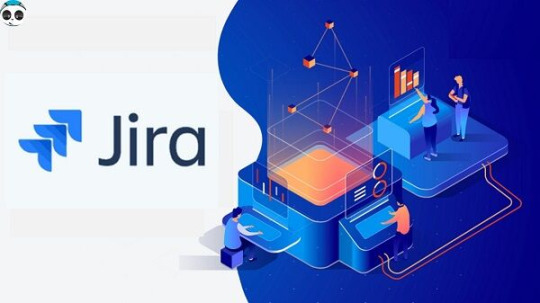
Jira is commonly used by businesses and companies all around the world.
It is a complete Project Management tool in which you can distribute your workflows and workloads within projects and within teams.
Also, in Jira you can have different kinds of tickets, issues, epics stories and different tasks that are assigned to different team members and different teams regarding their own specific projects. It is a simple and easy to learn tool.
So, I would say, for a DevOps Engineer position you should know how to use Jira.
Now the second tool on this list would be
#2: Git or GitHub

GitHub is a commonly known repository tool, many companies use it for the repositories to store and version control their code.
In GitHub you have an option to either make your repositories public, or you can keep them private. It totally depends on your company’s policies. If your organization decides to make the repository public, the code stays on cloud. Otherwise for private repositories, GitHub Enterprise needs to be setup by the organization on one of their data centers.
I would say GitHub is a really good tool that you should know how to use. Especially you need to know,
How To
Create New Repository
Store code in the repository
Clone the code on your local machine
Make changes in your local copy
Create Pull Requests and push the code to the remote repository after code reviews.
You also need to know all the basic Git commands like
Git status
Git add
Git commit
Git Push
Git Pull
Git Fetch
So, these are some basic git commands that you need to know.
For example,
Scenario 1: If you want to fetch a repository from GitHub to your local machine how would you
do that?
Scenario 2: If you want to push your local code to remote GitHub repository, how would you do that?
Apart from these, there are other important things in GitHub that are worth practicing like Web Hooks etc.,
These kind of basic activities in GitHub and ability to nonchalantly run the git commands on the terminal would be must for you to survive in a DevOps Engineer role.
So, moving on to the third tool in this list.
#3: Any Cloud Platform
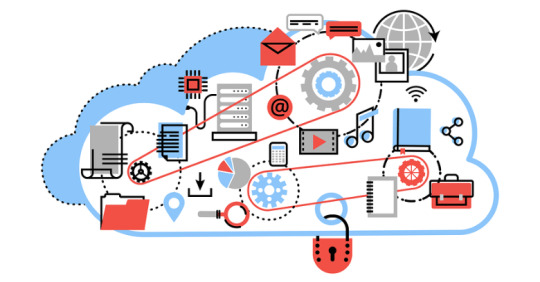
It can be MS Azure or AWS or GCP or RedHat Open Shift etc.,
You have a variety of cloud platforms to choose from. But you should completely focus on one. Simply
start gaining hands-on experience on it.
Personally, I have learned AWS. I also have AWS certification as an Associate Solution Architect in AWS. The certification itself demands hands-on experience on AWS and that will be thoroughly tested in the certification exam.
Also, my current position as a DevOps engineer. I have mostly worked on AWS, along with Containerization, Orchestration, Continuous Integration and Continuous Delivery (CI/CD). Also having hands-on experience on Storage and database is a must.
Having experience and thorough knowledge on at least one cloud provider is a must for a DevOps Engineer currently. Although, I personally recommend AWS, you can choose any provider that you can get your hands on.
Moving on to the fourth one, which is Jenkins.
#4: Jenkins

Jenkins is a CI tool which is Continuous Integration tool.
You can integrate it with AWS (or any cloud platform), GitHub, and many other tools to achieve CI/CD pipeline. Therefore, as a DevOps Engineer you need to at least know
How to use Jenkins
How to create jobs in Jenkins
How to create builds on Jenkins
How to integrate it with AWS or even GitHub
So, with Jenkins you can create Continuous Integration Continuous Delivery (CI/CD) pipelines
for your business. So, once the developer pushes the code to GitHub repository, the pipeline job is automatically trigger through Jenkins and it updates your application.
Jenkins is a great tool to learn. Although, it is easy to learn and master Jenkins, it is a very critical tool for any organization to practice DevOps. Therefore, you should dedicate a major amount of time and effort in learning and mastering this tool.
Now, the fifth tool on this list would be any Containerization tool which can be Docker in conjunction with Kubernetes.
#5: Docker and Kubernetes
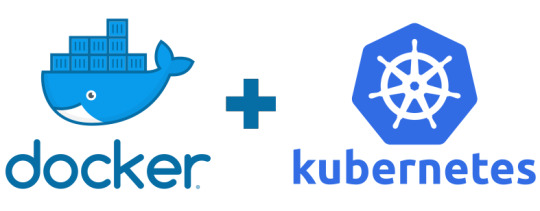
As you might already know containerization is growing rapidly throughout the cloud platform and DevOps world.
Docker makes it easy to deploy your app or Microservice on Cloud.
Kubernetes makes it easier to deploy your app on hundreds of servers.
Besides Docker, if there is another tool or technology which has caught software developers’ attention in recent times then it must be Kubernetes.
Docker also helps with DevOps because it simplifies deployment and scaling, and that’s why Every DevOps engineer should learn Docker.
Kubernetes is a portable, extensible, open-source platform for managing containerized workloads and services, that facilitates both declarative configuration and automation.
So that is it, get to know these tools, have your hands on them, get your hands wet, run into issues, resolve those issues and master these tools to land into your DevOps Engineer job.
For a complete guide on starting your career as a DevOps Engineer. Click here and enter your name and email to download the eBook ‘Guided path to DevOps career’.
#devops#kubernetes#log4j#docker#culture#code#developers & startups#tech#programming#edtech#firewall#install#books & libraries
5 notes
·
View notes